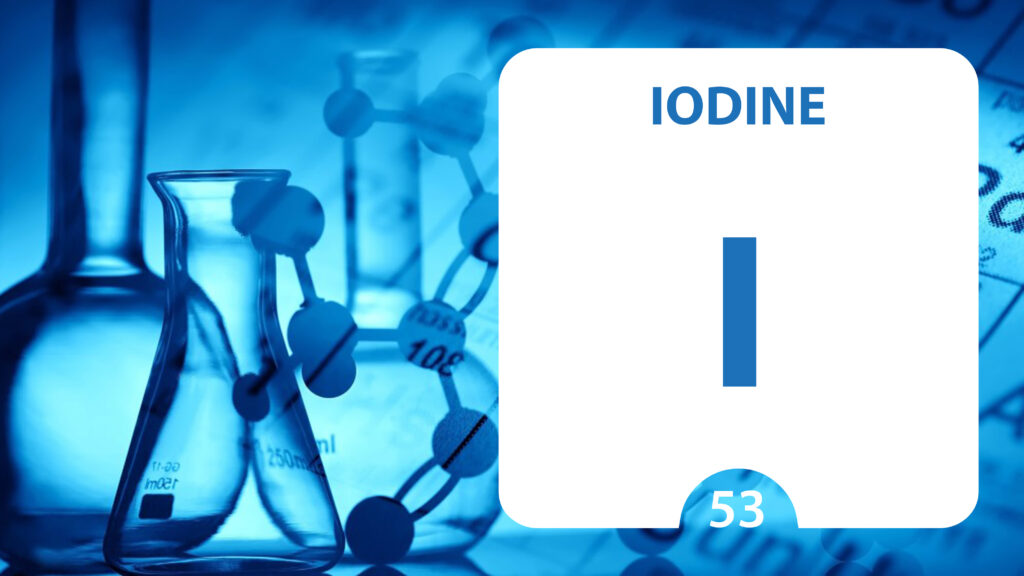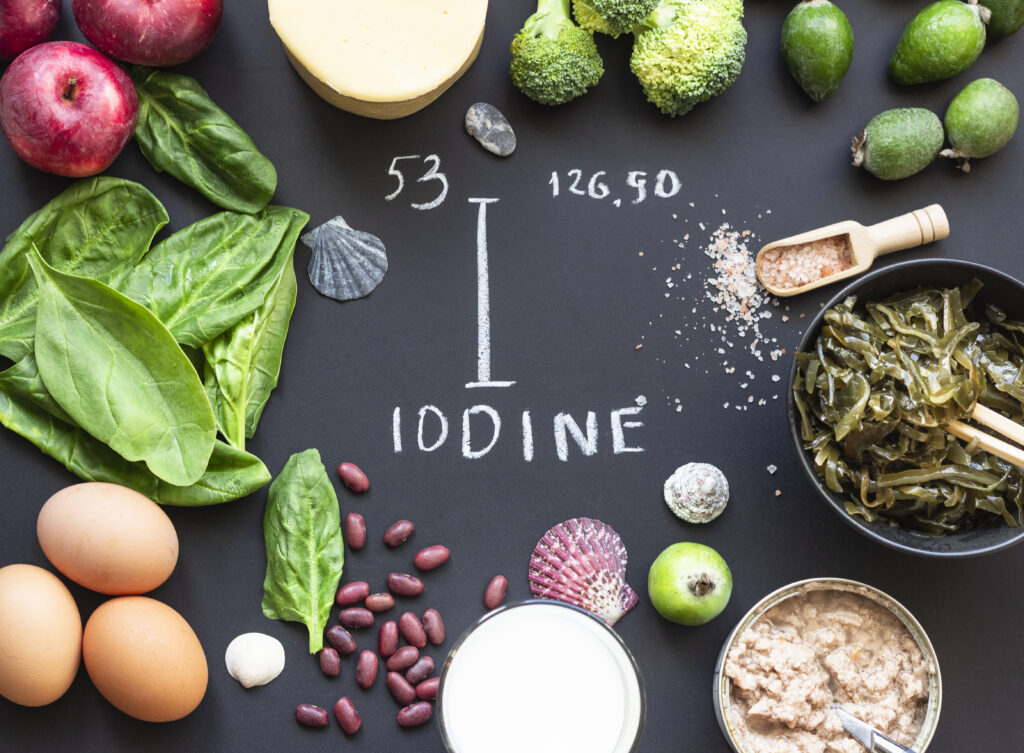
Iodine, in conjunction with the thyroid gland, is important for many bodily functions and helps maintain thyroid health. Yet, the human body cannot make iodine without help, so we must obtain iodine from our diet or through supplements.
Unlike other vitamins and minerals, maintaining balanced iodine levels is critical to a normal state of thyroid function. Preventing thyroid deficiencies versus toxicity can be a difficult process to manage.
In what follows, we’ll be providing an overview of iodine and its role in thyroid function. Further, we’ll discuss how iodine affects thyroid health, the impacts of low levels of iodine, and the potential consequences of iodine imbalance. Finally, we’ll discuss several sources of iodine and provide recommendations for maintaining optimal iodine levels.
Iodine
Iodine is a crucial mineral that plays a vital role in maintaining our overall health and well-being. It is utilized to maintain the proper functioning of the thyroid gland, which is responsible for regulating our metabolism, growth, and development.
The human body does not have the ability to produce iodine by itself, so it is necessary to obtain iodine from outside sources. These sources include soil, water, and certain foods such as seaweed, fish, other seafood, potatoes, and cranberries. Iodine can also be consumed in the form of dietary supplements.
The Role of Iodine in Thyroid Gland Function
The thyroid gland uses iodine to create thyroid hormones. It absorbs iodine from the diet, and thyroid cells combine iodine with an amino acid called tyrosine to create these hormones. In order to function properly, the thyroid gland requires sufficient levels of iodine to be able to make adequate amounts of thyroxine (T4) and triiodothyronine (T3).
When the thyroid gland does not have enough iodine, inadequate amounts of these thyroid hormones are the result, and several medical consequences can result from this condition.
A primary consequence of low iodine is the development of a condition called hypothyroidism, whereby the thyroid gland becomes underactive. If left untreated, hypothyroidism can lead to problems with heart disease, infertility, and depression.

Low iodine levels can also lead to the development of goiter. Goiter is a condition whereby the thyroid gland becomes enlarged and can cause difficulty swallowing or breathing. Goiter is caused by the thyroid gland trying to compensate for the lack of iodine by producing more thyroid cells causing enlargement of the gland.
Iodine deficiency is the most common cause of goiter worldwide, particularly in regions where the iodine content of the soil is low. In some regions, the use of iodine-depleted salt in food preparation can also contribute to iodine deficiency.
One of the ways that iodine has been added to the diet is through iodized salt. In many countries, iodized salt is mandatory and is widely available. When purchasing salt, it’s important to check the label to identify the presence of iodine. In some cases, individuals may need to limit their intake of iodine. Thus, it’s helpful to be aware of the iodine content of foods and supplements.
Primary Sources of Iodine
When it comes to maintaining optimal iodine levels, it’s important first to identify whether or not your body is deficient. This can be accomplished by standard blood work or a urine test through your primary care provider.
Many people may not know that they’re iodine deficient. Even if they’re eating a balanced diet, one might still not get enough iodine. In addition, pregnant women and individuals with certain health conditions may require higher levels of iodine.
If an individual is iodine deficient, the best way to improve levels is through whole food sources or via supplementation.
Before choosing one over the other, it’s important to know how significant the deficiency is and how much iodine is needed in order to reach optimal levels. You want to be able to achieve a balanced level for the best outcome.
Iodine-Rich Whole Foods

Some of the best whole-food dietary sources of iodine include:
- Fish (cod, salmon, and tuna)
- Shellfish (shrimp, oysters, and clams)
- Seaweed ( kelp, wakame, and nori)
- Dairy (milk, cheese, and yogurt)
- Eggs
- Some fruits and vegetables (potatoes and cranberries)
Note that some food sources are much richer in iodine than others. Seafood and fish are particularly high in iodine, while fruits and vegetables may have lesser amounts.
Iodine Supplementation
Iodine supplementation is also an option for those who may not be getting enough iodine in their diet. Iodine supplements come in various forms, including tablets, capsules, and drops.
According to the NHS, 0.5 mg or less daily is said to be generally safe. It’s always best to consult your healthcare provider before taking any supplements to ensure you are safely improving your iodine levels.
Final Thoughts
Iodine is an essential mineral that plays a vital role in maintaining our overall health and well-being, particularly in relation to thyroid health. To ensure that the thyroid gland is functioning properly, an adequate of iodine must be consumed in the diet.
Supplementation may be necessary for individuals who are lacking in iodine from their diet alone.
